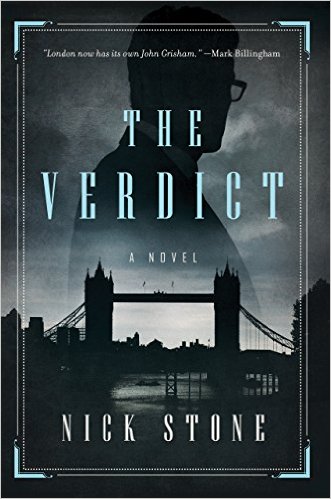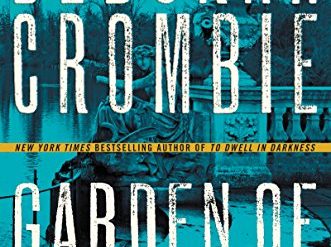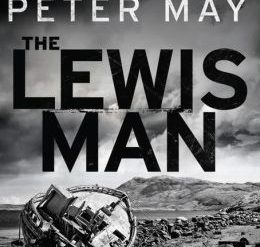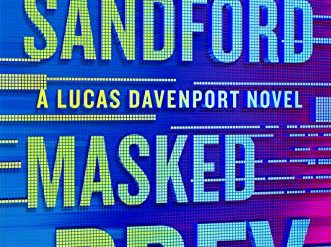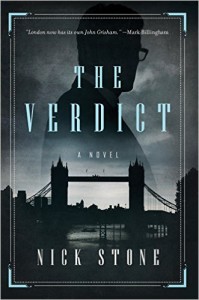
It’s 2011. David Cameron lives at 10 Downing Street, the recession is still in full swing, and London is simultaneously preparing for the 2012 Summer Olympics and the royal wedding of Prince William and Kate Middleton. This all takes place in the background of Nick Stone’s excellent English courtroom drama, The Verdict. The book has been compared to the work of John Grisham, and in many ways the comparison is apt.
Deadly secrets
In the midst of all the angst and confusion of that troubled year, a law clerk named Terry Flynt is unexpectedly offered a dream opportunity by the prestigious firm where he works. He is assigned to the defense team for Vernon James, a multimillionaire accused of murdering a young woman. There’s just one catch: Terry has been concealing important facts about his past from his employers. If those facts come out in the course of the case, Terry’s career in the law will be summarily ended.
The Verdict by Nick Stone ★★★★☆
To complicate matters further, Terry and Vernon had been best friends growing up poor in a poverty-stricken town in the hinterlands — until falling out in a dramatic way when both were in their first year at Cambridge University. Terry was expelled from the university, and he holds Vernon responsible. Naturally, he will be tempted to sabotage the case against his former friend.
Courtroom drama on steroids
The case against Vernon James seems unassailable. His motley defense team — a barrister risen from her deathbed, a second chair (“junior” in English courtroom parlance), Terry, and the solicitor who is head of the criminal practice at Terry’s firm — must somehow find ways to attack the police and prosecutor’s assertions and raise reasonable doubt. As the case painstakingly moves through successive phases over several months, Terry develops increasing doubt that Vernon is in fact guilty, the evidence notwithstanding. Gradually, facts that undermine the prosecution emerge in the courtroom. It’s fascinating to observe the interplay between the lawyers for the defense and the prosecution. And the story is told in such detail that the stark differences between legal procedures in England and the United States come into clear focus.
Has the English language changed more than I thought?
For some unfathomable reason, Stone repeatedly describes conversations among his characters as consisting of Smalltalk, with a capital S. Might this reflect a problem in the spellcheck utility on his computer? Smalltalk, capital S, is a computer programming language. Casual, superficial conversation is called small talk, two words, no capital S. Unless the Queen’s English has drifted even farther from familiar territory than I was aware.
There’s also a puzzling departure from accepted English grammar when Stone again and again notes that a character was sat instead of was sitting. Perhaps this is another Britishism that has escaped me. Please let me know if that’s the case.
About the author
Nick Stone has written three novels about a fictional American detective named Max Mingus. The Verdict, his fourth book, is the first to be set in the UK, despite the fact that Stone was born and educated in England.
For additional reading
This is one of 17 fascinating courtroom dramas.
You might also enjoy my posts:
- Top 10 mystery and thriller series
- 20 excellent standalone mysteries and thrillers
- 30 outstanding detective series from around the world
- Top 20 suspenseful detective novels
- Top 10 historical mysteries and thrillers
And you can always find my most popular reviews, and the most recent ones, on the Home Page.

